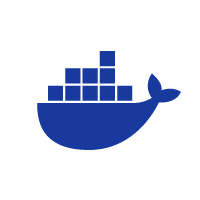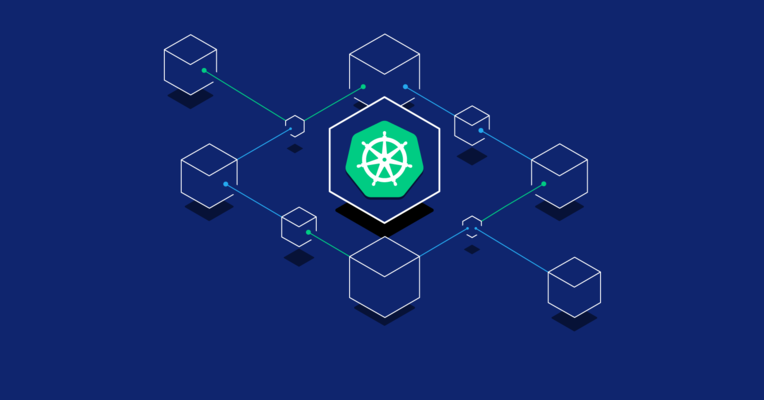
Docker-specialized DevOps Engineer Job Description Template
Containerization is a type of virtualization, and Docker is one of the most powerful open-source containerization technologies today. Unlike with traditional methodologies, Docker does not need an operating system for each application but instead uses application images that cleverly reuse parts of the host OS. This lean and secure approach means that Docker is increasingly used in place of full VMs for creating reproducible and scalable environments, so DevOps engineers with Docker skills are in high demand.
Trusted by leading brands and startups
Containerization is a type of virtualization, and Docker is one of the most powerful open-source containerization technologies today. Unlike with traditional methodologies, Docker does not need an operating system for each application but instead uses application images that cleverly reuse parts of the host OS. This lean and secure approach means that Docker is increasingly used in place of full VMs for creating reproducible and scalable environments, so DevOps engineers with Docker skills are in high demand.
Not to worry—this Docker-specialized DevOps engineer job description template will help you write a targeted job ad, so you can find and hire the right person with your specific criteria.
Docker-specialized DevOps Engineer - Job Description and Ad Template
Copy this template, and modify it as your own:
Company Introduction
{{ Write a short and catchy paragraph about your company. Make sure to provide information about the company’s culture, perks, and benefits. Mention office hours, remote working possibilities, and everything else that you think makes your company interesting. }}
Job Description
We are looking for a DevOps engineer who knows Docker inside and out. They will be responsible for defining and implementing our containerization technology strategies. They will also design our architecture and define our roadmap. The candidate will work on building, scaling, and monitoring various highly complex applications of ours, and making our container orchestration cluster highly available.
The candidate has to be an expert in Docker and containerization technologies. They must have knowledge about container orchestration tools like Kubernetes and logging/monitoring tools for these orchestration tools. They will also be responsible for building and improving our application CI/CD pipelines and keeping themselves and their team up-to-date with the latest industry trends and technologies.
Responsibilities
- Implement and improve monitoring and alerting.
- Build and maintain highly available systems on Kubernetes.
- Implement and manage CI/CD pipelines.
- Implement an auto-scaling system for our Kubernetes nodes.
- Participate in on-call rotations.
Skills and Qualifications:
- Operations or systems administration experience, particularly on Linux.
- At least {{ one year | two years }} of experience with {{ Kubernetes, etc. }}, Docker, and/or cloud deployment technologies
- Experience with container networking on Docker.
- Experience with application deployment by using CI/CD.
- Experience with monitoring tools like Prometheus, Grafana, Datadog, etc.
- Experience with alerting tools like OpsGenie, PagerDuty, etc.
- {{ List education level, experience level, or certification(s) you require }}
Recent Docker Articles by Toptal Engineers
How to Hire Docker Developers
Docker developers boost business productivity by simplifying the development, deployment, and distribution of digital products. This guide to hiring Docker experts offers insight into best practices, skill requirements, job description tips, and interview questions and answers to help you identify the best candidates for your project.
Read Hiring GuideFind the right Docker interview questions
Read a list of great community-driven Docker interview questions.
Read them, comment on them, or even contribute your own.
Hire a Top Docker Developer Now
Toptal is a marketplace for top Docker developers, engineers, programmers, coders, architects, and consultants. Top companies and startups choose Toptal Docker freelancers for their mission-critical software projects.
See Their ProfilesBogdan Baba
Bogdan is a senior Linux system administrator, DevOps engineer, and IT department leader with 15+ years of experience. He specializes in storage, servers, Puppet, Terraform, Kubernetes, Docker, Linux, and AWS, and he has worked in the apparel, fashion, and cryptocurrency industries.
Show MoreVictor Barba Martin
Victor has substantial experience in the field of DevOps, architecting AWS solutions and leveraging tools like CloudFormation, EC2, ECS, Lambda, VPC, and S3, among others. He is adept at handling governance and management tools (Organizations, CloudTrail, and Config) and developer tools (CodeBuild, CodePipeline, and CodeDeploy). Victor has successfully migrated workloads to containers, set up CI /CD pipelines, and built Slackbot for deployments and dynamic creation of development environments.
Show MoreClark Winters
Clark is an experienced DevOps engineer with a strong background in systems integration and programming. He has expertise in web, cloud, and database ecosystems and an affinity for the Go programming language and tools like Terraform and Docker. Clark helps clients build scalable cloud infrastructure, web services, REST APIs, and automation scripts, prioritizing efficient, tailored solutions with a commitment to on-time delivery and quick adaptability to new projects.
Show MoreRyan Matthew Smith
Throughout his career, Ryan has consistently worked with startups and small software shops where each milestone was make-it or break-it. He loves infrastructure as code managed with Terraform in AWS. Ryan found his niche writing DevOps tooling in Go and Bash and contributes to the open-source community regularly. Ryan is also an expert working with Docker to deploy and maintain Kubernetes systems. Ryan excels at working as a technical leader or alongside a team, depending on the project's needs.
Show MoreLorcan O'Flynn
Lorcan is a DevOps and cloud engineer with ten years of experience helping product companies build, grow, and scale their offerings globally. His past roles include head of engineering, CTO, developer, system administrator, DevOps, and CloudOps engineer. Lorcan's expertise includes DevOps, CloudOps, solution architecture, serverless, cloud infrastructure engineering, CI/CD, microservices, containerization, systems integration, and cloud security, leveraging AWS, Python, Django, and Docker.
Show MoreBrian Lenoski
Brian has 10 years of experience developing software across web, mobile, and desktop platforms, including being part of the development team that brought public transit to Apple Maps. Brian communicates exceptionally well and has worked in teams of all sizes.
Show MoreWassim EL-Asmar
Wassim is passionate about system administration, focusing on infrastructure, automation, configuration management, and the implementation of evolutive systems. His past experiences include working with OpenStack, as well as a migration of a Docker infrastructure to OpenShift. His current contracts involve work with AWS, Kubernetes, and GitLab CI/CD. Skilled, organized, and professional, Wassim is a considerable asset to any team geared toward process automation and DevOps best practices.
Show MoreBishoy Sefen
Bishoy is an innovative DevOps, DevSecOps, and software engineer with 8+ years of technical experience designing, implementing, securing, and managing CI/CD workflows, infrastructure, and microservices. He has deep experience with Kubernetes, cloud platforms (AWS), Linux-based systems, and cybersecurity. Bishoy is passionate about keeping up with new technologies and building efficient and reliable solutions.
Show MoreGrzegorz Eliszewski
Grzegorz is a DevOps engineer experienced in creating continuous integration and continuous delivery processes, software development, and infrastructure maintenance for a variety of project sizes. A Cloud Native solutions advocate, he is also skilled in OpenShift and Kubernetes DevOps. Grzegorz is currently enjoying working with Big Data ecosystems and container orchestration.
Show MoreBrian Kim
Brian is a back-end developer who focuses on building resilient and scalable systems while achieving optimal response times. He enjoys writing code that makes strong abstractions on product requirements while thinking about infrastructure needs—producing software that is easy to deploy and maintain.
Show MoreEimantas Genciauskas
Eimantas is a DevOps/SRE engineer and back-end developer with over four years of experience working with AWS as a certified architect. Adept at working with various AWS services and principles, he's handled projects of varying sizes and complexities—from single containerized APIs to highly available ones—including scalable and fault-tolerant applications in Kubernetes. Eimantas emphasizes security, compliance, and access management, ensuring projects meet the highest standards.
Show MoreDiscover More Docker Developers in the Toptal Network
Start HiringToptal Connects the Top 3% of Freelance Talent All Over The World.
Join the Toptal community.




















